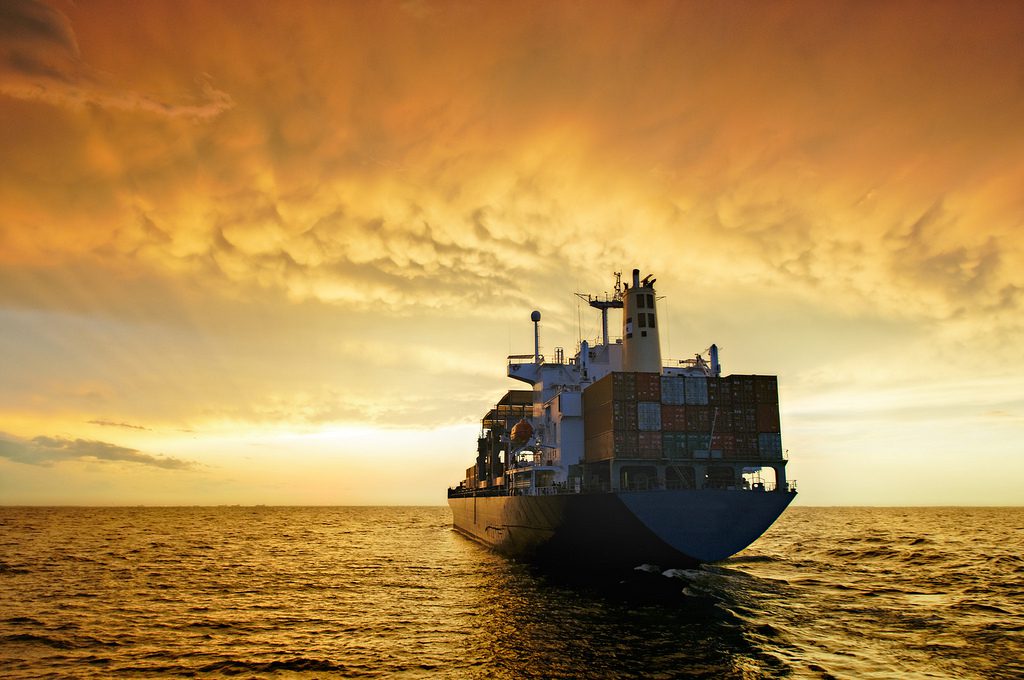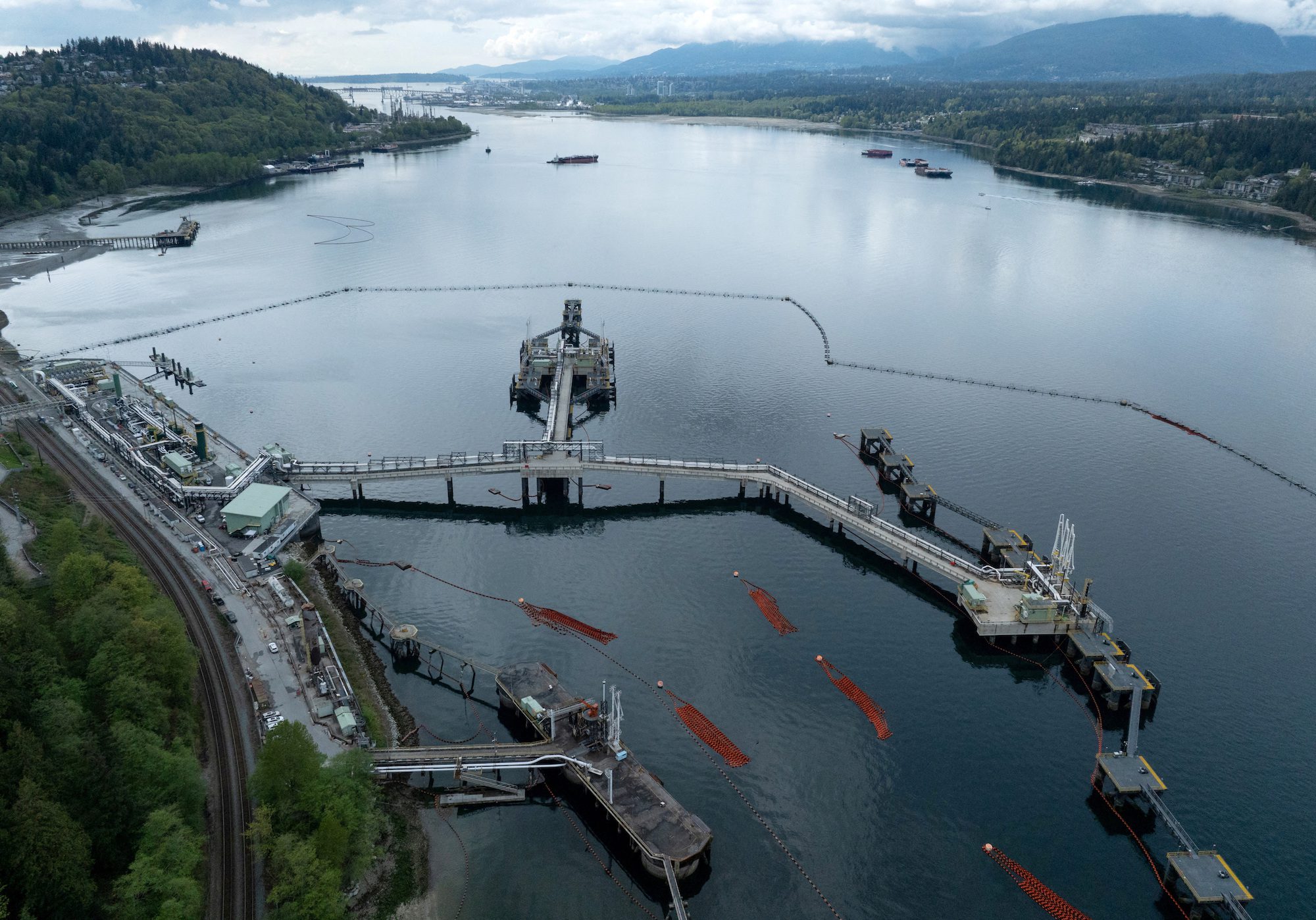File photo: Lou Vest
With no explicit reference to shipping in the historic climate deal unanimously adopted by almost 200 nations in Paris this weekend, it is now up to the International Maritime Organization (IMO) to cut greenhouse gas emissions from a sector which ranks among the world’s biggest contributors of carbon dioxide emissions.
The a final deal, known as the Paris Agreement, was agreed to on Saturday after two weeks of around-the-clock negotiations involving delegates from 195 countries at the United Nations Climate Change Conference (COP21) held in Paris. The aim of the agreement is to keep a global temperature rise this century well below 2 degrees Celsius and to drive efforts to limit the temperature increase to just 1.5 degrees Celsius above pre-industrial levels.
The final text of the Paris Agreement includes no explicit reference to international shipping, which according to the IMO accounts for 2.2% of earth’s man-made CO2 emissions.
The shipping industry has largely welcomed the Agreement, but stakeholders have also acknowledged that work must continue at the IMO to further reduce international shipping’s overall CO2 emissions as part of the global effort to mitigate the impact of climate change.
The International Chamber of Shipping (ICS), representing the global shipping industry throughout the United Nations Climate Change Conference, says it “greatly welcomes” the Paris Agreement and reiterates that the shipping industry remains committed to ambitious CO2 emission reduction across the entire world merchant fleet, reducing CO2 per tonne-km by at least 50% before 2050 compared to 2007. ICS asserts that dramatic CO2 reductions from ships will only be guaranteed if further regulation continues to be led by IMO.
“I am sure IMO Member States will now proceed with new momentum to help the industry deliver ever greater CO2 reductions, as the world moves towards total decarbonization by the end of the Century” commented ICS Secretary General, Peter Hinchliffe.
ICS says it plans to engage in meaningfully in discussions at the IMO during the next meeting of the Marine Environment Protection Committee in April 2016, where ICS plans to discuss possibility of agreeing a CO2 reduction target for shipping.
Prior to the Paris negotiations, the ICS had hoped that any deal would include acknowledgment of the importance of IMO in continuing to develop further CO2 reduction measures.
“CO2 is a global problem and shipping is a global industry,” added Hinchliffe in a press release issued Monday. “IMO is the only forum which can take account of the UN principle of ‘differentiation’ while requiring all ships to apply the same CO2 reduction measures, regardless of their flag State. Unilateral or regional regulation would be disastrous for shipping and disastrous for global CO2 reduction, whereas IMO is already helping shipping to deliver substantial CO2 reductions on a global basis.”
A similar sentiment is held by European shipowners, represented by the European Community Shipowners’ Association, which also welcomed the Agreement and is now calling on solid action at the IMO, referencing the specialized United Nations’ agency as “the appropriate international body to address greenhouse gas emissions from ships engaged in international trade”.
Specifically, the ECSA (and ICS for that matter) would like to a see a global data collection system of CO2 emissions from ships.
“Following the adoption in 2011 of measures to increase the energy efficiency of the industry, the agreed next step is a global data collection system of CO2 emissions”, said Patrick Verhoeven, Secretary General of ECSA, in a statement released Monday in the wake of the Paris Agreement. “The governments in IMO will resume discussions on such a system in April next year, with the aim of ascertaining the real contribution of international shipping to global CO2 emissions. We strongly encourage all parties to ensure that these discussions lead to the establishment, as soon as possible, of a mandatory data collection system.”
Critics, on the other hand, have said that the absence of shipping (and aviation) from the Paris Agreement casts doubts over who is responsible for reining in emissions from the two transport sectors, which together account for an estimated 8% of global CO2 emissions, and undermine the prospects of keeping global warming below the 1.5°C target.
“The Agreement now leaves it unclear which actors have responsibility to reduce emissions from these sectors. If [International Civil Aviation Organization and IMO] wish to retain a role, they must urgently scale up their ambition. Otherwise states and regional actors will have a right to adopt measures to ensure these sectors contribute to the 1.5°C target,” commented Andrew Murphy, Aviation and Shipping Officer for Transport & Environment, a green NGO and one of the more vocal proponents of including the two sectors in the any climate deal.
So now it’s up to the IMO the decide on regulations concerning greenhouse gas emissions from ships, a role in which it has recognized wholeheartedly.
“The absence of any specific mention of shipping in the final text will in no way diminish the strong commitment of IMO as the regulator of the shipping industry to continue work to address GHG emissions from ships engaged in international trade,” commented IMO Secretary-General Koji Sekimizu in a press briefing released Monday titled “Full speed ahead with climate-change measures at IMO following Paris Agreement”.
In the briefing, the IMO recapitulated that it remains the only organization to have adopted energy-efficiency measures that are legally binding across an entire global industry and applicable to all countries.
“Mandatory energy efficiency standards for new ships, and mandatory operational measures to reduce emissions from existing ships, entered into force under an existing international convention (MARPOL Annex VI) in 2013. By 2025, all new ships will be 30% more energy efficient than those built last year. This is more than a target, it is a legal requirement, and demonstrates that IMO is the correct and only forum to identify solutions and an appropriate pathway for international shipping to de-carbonize with the rest of the globe,” the IMO said in the briefing.
The IMO’s briefing added:
Continuing efforts will include development of a global data collection system for ship’s fuel consumption to be discussed in detail at the next meeting of IMO’s Marine Environment Protection Committee in 2016, further consideration of a total-sector reduction target for GHG emissions from international shipping as proposed by the Marshall Islands in 2015, and continued investigation of additional mechanisms for ships to support the implementation of the Paris Agreement.
During COP21, IMO provided an update of its work to address GHG emissions from bunker fuels used for international shipping. Specifically, IMO reported on its work on further developing guidelines to support the uniform implementation of the regulations on energy-efficiency for ships; and on its efforts with regard to technical co-operation and capacity-building to ensure effective implementation and enforcement of the aforementioned new regulations worldwide and, importantly, activities to support promotion of technical co-operation and transfer of technology relating to the improvement of energy efficiency of ships.
At IMO, the Governments of the world come together to develop the regulatory framework for international shipping which forms the basis for investment decisions. There is a clear imperative now for IMO’s Member States to rise to the challenge set by the Paris Agreement. Secretary-General Sekimizu said, “I now encourage Governments to bring the spirit of the Paris Agreement to IMO and come forward with new, creative proposals and to approach them in a constructive and cooperative manner.”
References:
Unlock Exclusive Insights Today!
Join the gCaptain Club for curated content, insider opinions, and vibrant community discussions.

 Join The Club
Join The Club











